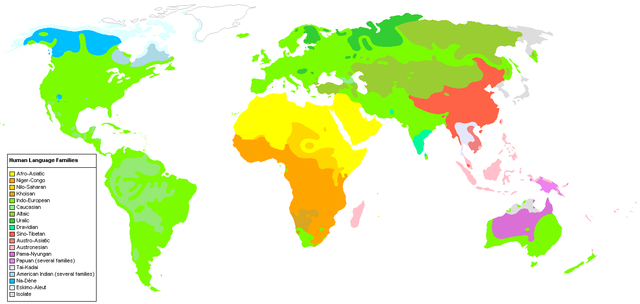 |
This map image was uploaded in a raster graphics format such as PNG, GIF, or JPEG. However, it contains information that could be stored more efficiently and/or accurately in the SVG format, as a vector graphic.
If possible, please upload an SVG version of this image. After confirming it is of comparable quality, please replace all instances of the previous version throughout Wikipedia (noted under the "File links" header), tag the old version with {{ Vector version available|NewImage.svg}} |
 |
See the talk page for a better version -- 86.29.244.179 ( talk) 13:36, 23 July 2008 (UTC)
 |
This map image could be recreated using vector graphics as an SVG file. This has several advantages; see Commons:Media for cleanup for more information. If an SVG form of this image is already available, please upload it. After uploading an SVG, replace this template with {{ vector version available|new image name.svg}}. |
Info
This file is from the English Wikipedia. It represents the largest uncontroversial linguistic macrofamilies using the colour scheme from en:Wikipedia:WikiProject Languages. (Thus, Japanese and Korean are represented as language isolates, despite various contested theories linking them to other families (probably Altaic family) or each other.)
Due to the lack of sourcing and the inherent imprecision of the Robinson projection, this should be taken as a somewhat impressionistic representation.
The legend's font is Arial 11.
Pending
- Remove remaining paraphyletic groups
- Review validity of Altaic grouping, per de:Bild Diskussion:Sprachfamilien der Welt (Wikipedia Farben).png#Neue Version
- Mark New Zealand as entirely indo-european, per en:Image talk:Human Language Families (wikicolors).png#Māori language.
- A policy needs to be adopted regarding autochtonous languages versus imported (colonial) languages. Why has Equatorial Guinea been marked Indo-European because Spanish is spoken there, but other African countries, where English, French or Portuguese are spoken, haven't? Sure EG should be changed back to the autochtonous language group?
Version history
- On 31 October 2004, de:Bild:Sprachen der Welt.png was created by de:Benutzer:Stern who used the map template Image:BlankMap-World.png by en:User:Vardion.
- On 13 February 2005, it was redrawn by en:User:Industrius as en:Image:Human Language Families Map.PNG
- On 8 June 2005, en:User:Peter Farago recolored it as en:Image:Human Language Families Map (Wikipedia Colors .PNG) using the language family colour codes from en:Wikipedia:WikiProject Languages and reducing the language families represented to the largest uncontroversial macrofamilies.
- On 26 October 2005, en:User:Ishwar added the Nadene family with its color and added colour specks for the Hopi, Havasupai, Western Apache, Choctaw, Cherokee, Mescalero, Zuni, Keres, Sioux languages. (although these are hardly visible.)
- On 9 November 2005, en:User:Peter Farago corrected errors in Hainan and Taiwan, pointed out by en:User:ran on en:Image talk:Human_Language_Families_Map_(Wikipedia_Colors_.PNG; corrected error in Malta; replaced the paraphyletic "Australian languages" group with the well-attested Pama-Nyungan family (redrawn after this source), marking the non-Pama-Nyungan languages as isolates; and recolored Greenland and the Queen Elizabeth Islands to indicate that they are uninhabited, not language isolates.
- On 17 January 2006, de:Benutzer:Danyalov altered the boundaries of the Turkish and Azerbaijani regions, following a discussion on de:Bild Diskussion:Sprachfamilien der Welt (Wikipedia Farben).png.
- On 21 June 2006, es:Usuario:Satesclop noted Spanish-speaking populations in Equatorial Guinea and the Canary Islands, and added cross-hatching to indicate Spanish speakers in the interior of South America.
Other languages
See also the German version:
Sources?
Possibly it is- en:Yiwaidjan_languages en:Australian_Aboriginal_languages en:Australian_Aboriginal_languages en:Arnhem_Land_languages en:Australian_Aboriginal_languages
-- 86.29.242.17 ( talk) 16:54, 23 July 2008 (UTC) en:Semitic_languages -- Mike A Mitchel jr ( talk) 08:45, 24 July 2008 (UTC) en:Hamitic_languages] -- 213.232.79.146 08:55, 24 July 2008 (UTC) en:Austric_languages en:French_Polynesia#Languages
213.232.79.146 08:56, 24 July 2008 (UTC) 86.29.246.244 07:19, 22 July 2008 (UTC)
-- 86.29.242.17 16:52, 23 July 2008 (UTC)
An error?
I can't see the Basque language in Northern Spain any more, so I reverted it to remove the foggyness/deletion of the Baques.-- 213.232.79.149 08:52, 23 July 2008 (UTC)
The Australian Indigenous languages covering the northern part of Australia somehow got lost between version 29th of May and 30th of May - can someone please put them back in or say why they have been removed? thanks 129.215.149.99 12:11, 4 September 2008 (UTC)
Licensing
 |
Permission is granted to copy, distribute and/or modify this document under the terms of the GNU Free Documentation License, Version 1.2 or any later version published by the Free Software Foundation; with no Invariant Sections, no Front-Cover Texts, and no Back-Cover Texts.
Subject to disclaimers.www.gnu.org/copyleft/fdl.htmlGFDLGNU Free Documentation Licensetruetrue
|
The following pages on Schools Wikipedia link to this image (list may be incomplete):




